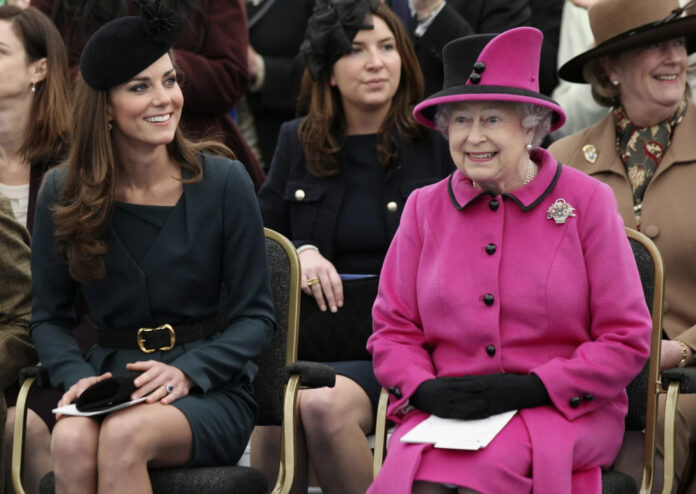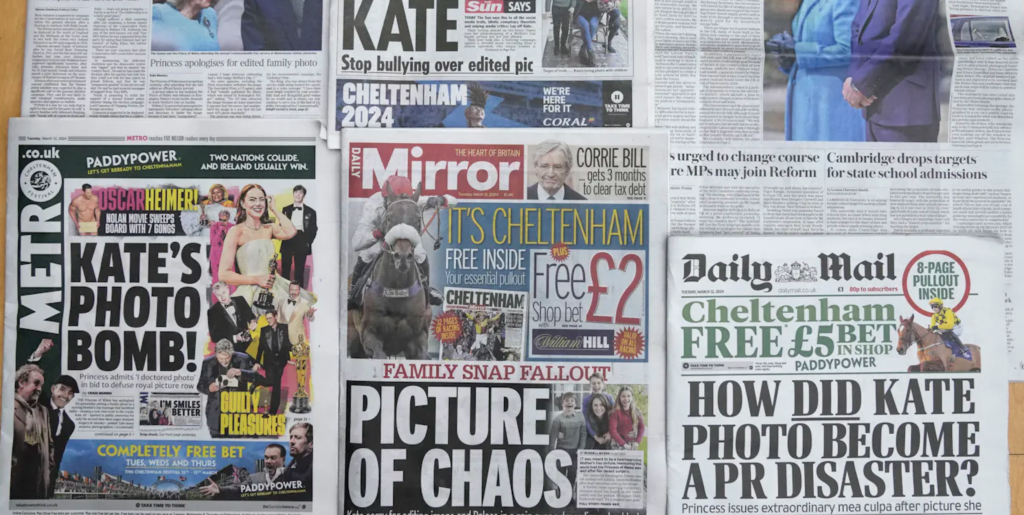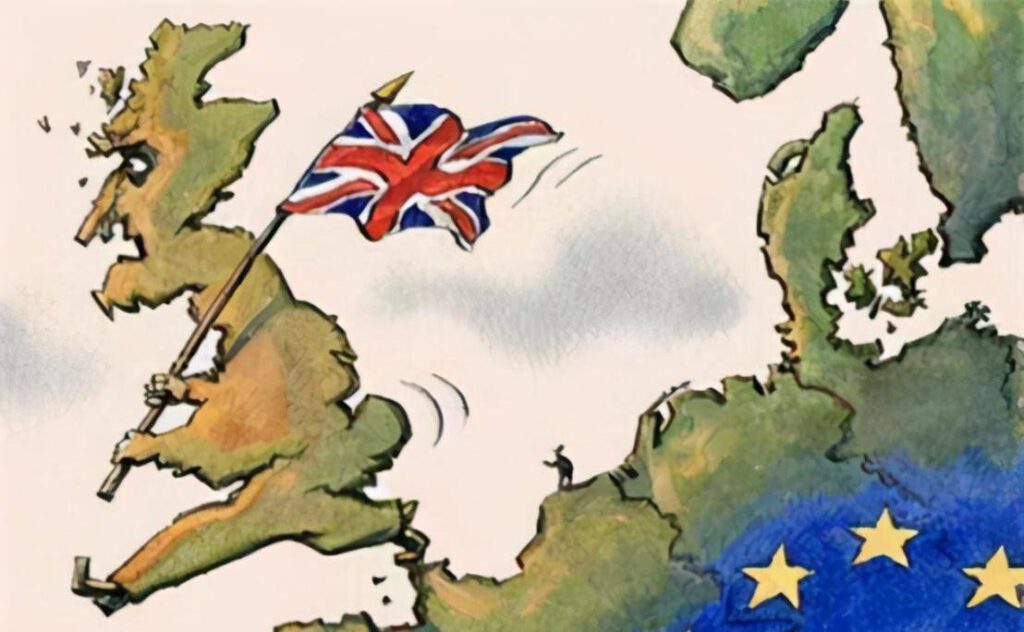
Recently, the “disappearance” of Princess of Wales Kate has ignited a firestorm of public opinion in the UK and garnered global attention. As discussions swirl around the gossip surrounding the British royal family, some are questioning the necessity of its existence.
Certain analysts argue that this scrutiny could potentially lead to the monarchy’s abolition, and such speculation is not entirely unfounded. In fact, since World War II, the United Kingdom has established a framework where public opinion plays a pivotal role in shaping domestic affairs, making it a fundamental consideration in political decision-making. The stability of public opinion is intricately linked to the stability of internal affairs.
Post-war British politics encountered dual crises: one of national legitimacy and another of imperial legitimacy. These twin crises have profoundly influenced public opinion, shaping the landscape of British politics.

After the conclusion of World War II, British politics grappled with the paramount challenge of validating state authority. The British populace, having made significant sacrifices for victory, clamored for acknowledgment of their contributions and the establishment of a welfare state. The construction of a welfare state emerged as a means to mitigate class conflicts and solidify the political system’s legitimacy, thereby averting internal strife stemming from the rich-poor divide.
Consequently, amid post-war economic turmoil, the British government pursued a strategy aimed at sustaining both a welfare state and an empire, effectively balancing the disparate demands of various societal factions. To salvage the capitalist system, policymakers faced a dilemma: either reform the domestic wealth distribution structure or augment colonial wealth acquisition. Evidently, senior officials within the British government leaned towards the latter option.
Beneath the facade of a welfare state and imperial cohesion simmered internal discord. To secure electoral support, both political parties expanded welfare provisions, resulting in escalating welfare expenditures that encroached upon military and administrative budgets crucial for empire maintenance.
This trend signaled the ascent of the middle and working classes at the expense of the traditional military-administrative aristocracy, a longstanding pillar of the empire. Prioritizing the welfare state and domestic economic reconstruction shifted the government’s legitimacy proof from external military exploits to social welfare initiatives. The exorbitant military and political costs associated with empire upkeep rendered it an increasingly burdensome entity in the eyes of many.

The crisis of national legitimacy thrusts the establishment of a welfare state to the forefront of public opinion. The populace demanded a frugal empire, wherein the resources expended by the British government in maintaining the empire remained within certain bounds.
Exceeding these limits risked a backlash from public sentiment. Concurrently, the shifting interests of the monopoly bourgeoisie aligned with public opinion, while the dominant financial-military interest group alliance teetered on the brink of collapse.
As the empire gradually lost its role in validating British state power, the “moral mission” that once underpinned its existence eroded among the populace.
Undoubtedly, within British domestic politics, the government commands an overwhelmingly influential role in shaping imperial policy. The two-party political system has eroded the theoretical authority of Parliament over the British Overseas Territories, relegating policy-making initiative to those holding government ministerial positions. Political activities and organizations outside of Parliament wield negligible influence over the primary process of decolonization.
The alternating two-party government had to navigate a delicate balance between two divergent public opinion currents: prioritizing the welfare state and upholding imperial pride. Both parties ascended to power pledging to expand social welfare, thereby placing welfare state construction as their foremost agenda.

Simultaneously, the public maintained a certain degree of imperial pride. However, in practice, conflicts often arose between allocating resources to welfare state development and sustaining the empire, necessitating a middle-ground approach from the government. Furthermore, the imperial issue wasn’t perceived by the public as a singular challenge but rather as a multitude of interconnected problems, exacerbating the government’s coordination challenges.
To preempt potential vehement public backlash against governmental decisions, the British government leaned towards granting colonies peaceful independence as members of the Commonwealth. A relatively consistent consensus emerged in public opinion regarding Commonwealth development.
Whether during the existence of the financial-military interest group alliance or its aftermath, stakeholders sought to maintain a “backyard” where their interests held precedence. One manifestation of this sentiment was the broad consensus within “consensus politics” regarding retaining the empire.
Following the 1950s and 1960s, the foundational concepts of imperial social values experienced a decline. The British aristocracy, primarily engaged in military administration, could no longer assert their status as the nation and empire’s ruling class solely based on inherited responsibilities.
British domestic politics played a pivotal role in determining the pace of the empire’s dissolution. Social crises laid bare the latent perils of entrenched interest group alliances. Provoked by crises, these alliances adjusted their demands and adapted to evolving circumstances. Moreover, the presence of democracy precludes interest group alliances from making binary decisions.

A conspicuous manifestation of this dynamic is the divergence of public opinion across different stages, which constrains the fluctuating needs of government decision-making. Public opinion delineates the realm of policy possibilities and serves as the linchpin for political leaders’ decisions.
When the empire contributes to welfare state development and economic rejuvenation, public opinion supports maintaining it, albeit at a certain cost. Conversely, public sentiment may turn against the empire if it perceives diminishing benefits.
Any royal crisis merely furnishes dissatisfied segments of the public with an opportune moment to rebuke what they perceive as an arrogant and inept ruling class. Beneath the veneer of crises involving Kate, such as rumored family discord or royal photo scandals, lies a broader sentiment among the people of the Commonwealth questioning the necessity of the British Royal Family’s existence and the dominance of the ruling elite.
(Source: wenhuazongheng, The Conversation, The News International)



